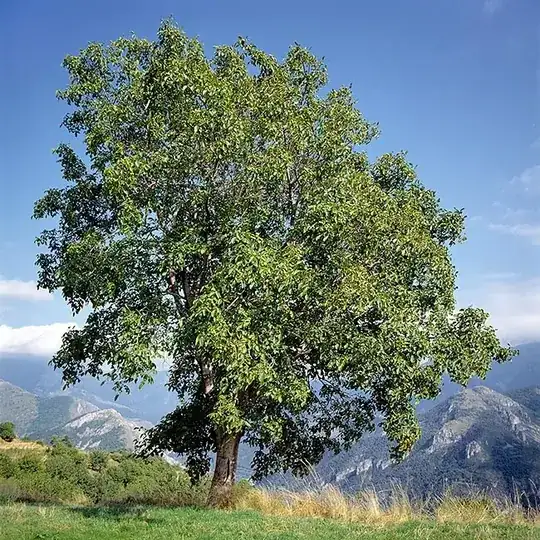I've got a large walnut tree (Juglans regia), and I am happy with it, I just want to improve further that part of my garden to be more attractive to birds and butterflies.
My idea is to plant a climber that will climb up the walnut, and hopefully cover it (at least partially).
I searched the net, but could not find a similar case.
No need to mention that the climber must be juglone-tolerant.
Is this doable, or even possible at all?
My thoughts are now:
- lonicera
- hedera
- wisteria
This list of juglone-tolerant plants mentions lonicera and wisteria, but not hedera. Another list mentions lonicera only (out of these three).
I will be doing some crown lifting pruning of that walnut next spring, so that more sunlight is available daily for the area at the bottom of the tree.
This is not my walnut tree, but my tree is very similar (age, size, habit...) to the pictured one:
